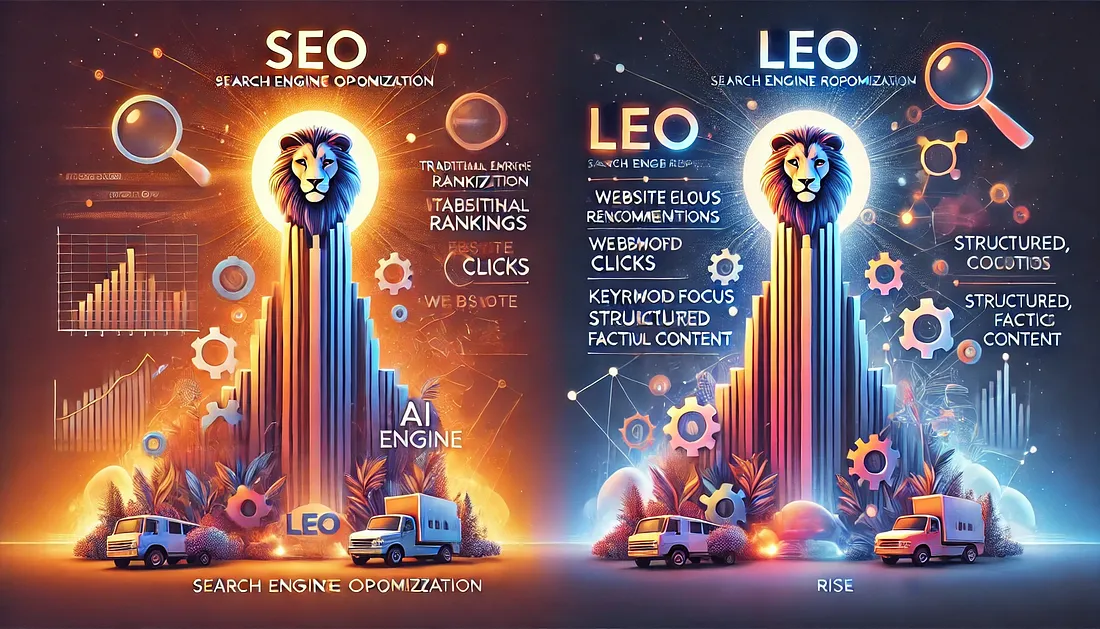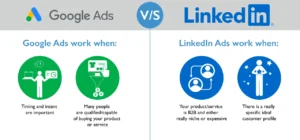Let’s be honest- SEO has been frustrating lately, hasn’t it? You spend hours optimizing content, tweaking keywords, and chasing backlinks, only to see inconsistent search rankings. With constant Google algorithm updates and AI-driven search, it might feel like organic SEO is dead. If you’ve been thinking, “Is SEO still worth it?”- you’re not alone.
But here’s the good news: SEO isn’t dead- it’s just evolving. The rise of AI-powered search engines and Large Language Models (LLMs) is transforming how we optimize for search. Enter LEO (Language Experience Optimization), the future of search optimization that aligns with AI-driven algorithms.
In this blog, we’ll explore how LEO is reshaping SEO, why LLM optimization is the key to ranking higher, and how businesses can adapt to the future of search. Stay ahead of the curve and ensure your website remains competitive in this AI-driven world!
IS ORGANIC SEO DEAD? THE TRUTH BEHIND THE MYTH-
Despite the rumors, organic SEO isn’t dead-it’s just undergoing a major transformation. Traditional SEO tactics, like keyword stuffing and backlink farming, are no longer as effective as they used to be. Search engines are smarter, and AI-powered models now prioritize context, user intent, and quality over outdated ranking tricks.
Google’s recent updates, powered by AI models like BERT, MUM, and Gemini, focus on delivering human-like, conversational results. This shift means businesses must optimize their content for contextual relevance, natural language processing (NLP), and user experience rather than just keywords.
WHAT IS LEO (LANGUAGE EXPERIENCE OPTIMIZATION)?
LEO, or Language Experience Optimization, is the next evolution of SEO, designed to optimize content for AI-driven search engines and Large Language Models (LLMs). Unlike traditional SEO, which focuses on keywords and backlinks, LEO prioritizes:
Conversational Search Optimization: Aligning content with how users naturally ask questions in search.
Context and Semantic Search: Creating content that answers user intent rather than targeting exact-match keywords.
Authority & Trust Signals: Google’s AI prioritizes expertise, trustworthiness, and relevance over simple on-page SEO tactics.
User Experience (UX) & Engagement: Dwell time, bounce rate, and interaction signals play a crucial role in rankings.
HOW TO OPTIMIZE FOR LEO & FUTURE-PROOF YOUR SEO STRATEGY-
1. Focus on User Intent & Conversational Content-
Forget keyword stuffing-Google now understands semantic search and natural language queries. Instead of targeting specific keywords, structure your content around questions users are actually asking. For example:
Old SEO: “Best coffee machines 2024” LEO Optimization: “What are the best coffee machines for home use in 2024?”
2. Leverage AI-Generated Content-
AI-generated content is on the rise, but Google penalizes low-quality AI spam. Instead of relying solely on AI-written articles, blend AI with human creativity to create engaging, authoritative content. Google values:
- Fact-checked, high-quality information
- Unique insights, real-world examples, and expert perspectives
- Clear, structured, and engaging formatting
3. Optimize for Voice Search & AI Assistants-
With AI-driven assistants like Google Assistant, Siri, and ChatGPT, voice search is growing. To rank for voice queries:
- Use long-tail, conversational keywords
- Structure content with FAQ sections
- Ensure your site loads fast and mobile-friendly
4. Build Topical Authority, Not Just Keywords-
Instead of publishing random keyword-optimized articles, build comprehensive topic clusters. Create a pillar page that covers a broad topic, then link related subtopics to establish topical relevance.
Example:
- Pillar Page: “Complete Guide to AI-Powered SEO”
- Subtopics: “How Google’s AI Algorithms Work,” “What is LEO in SEO?” “Best Practices for LLM Optimization”
5. Improve Website UX & Engagement Signals-
Google’s AI prioritizes user satisfaction metrics, so ensure your site offers a seamless experience:
- Fast Load Times- Sites that load in under 2 seconds rank higher
- Mobile Optimization- Over 60% of searches happen on mobile
- Engaging Content- Videos, infographics, and interactive elements boost dwell time
THE FUTURE OF SEARCH: ADAPTING TO AI-DRIVEN SEO-
SEO isn’t dead- it’s smarter, AI-driven, and experience-focused. The rise of LLM optimization means brands must shift from keyword stuffing to natural, valuable, and user-focused content.
The shift from SEO to LEO (Language Experience Optimization) means businesses that adapt to AI-powered search will dominate rankings. Whether it’s optimizing for conversational queries, voice search, or AI-driven results, the key is staying ahead of Google’s evolving algorithms.
CONCLUSION:
As search engines evolve, traditional SEO tactics are no longer enough. To stay ahead, businesses need an AI-optimized SEO strategy that aligns with LEO principles. That’s where expert guidance comes in. At SOCIAL MATTERS-best SEO marketing agency in hyderabad we provide all services related to SEO marketing related such as keyword research & Analysis, On Page SEO optimization, Link Building & Off-Page SEO, etc. Contact us now!
FOLLOW US ON INSTAGRAM!








